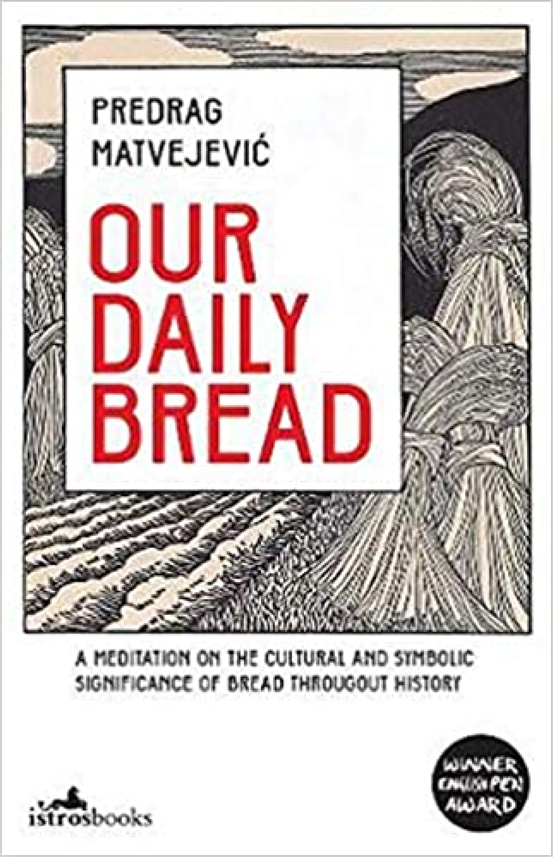
Reading this book brought me a great deal of joy, and I found much to savour both as a Classicist and as a keen home baker. Matvejević takes you on bumpy journey across the places and historical periods that are linked to the history and significance of bread, and the constant hopping through time, languages and geography makes it a real page turner.
As the book title reveals, this is a meditation, and you are invited to see the history of bread from the nuanced perspective of the author. Readers should not expect an exhaustive and factual approach, but rather a personal picture with its roots in Europe and the Mediterranean. The life experiences of the author are the motor of the narrative, and thorough scholarship is shared in a very accessible way. Overall, the book is a treasure trove of anecdotes and scientific and literary information, as well as of a very substantial number of etymological facts and curiosities. Avid philologists may find that they are being deprived of information because quotes are often presented either directly in translation and/or transliteration without the original text, with just a few exceptions to this. The same may apply to those looking for references, as sources cannot be traced easily. However, the lack of footnotes and bibliographical information is part of the allure of a book that is best enjoyed with feet up and away from the desk – ideally with a fresh loaf of bread! And regarding bread, that is one of the highlights of the book: there is much to learn about the traditions behind modern bread-making techniques, and the encyclopaedic amount of information about seeds, cultivation, manufacture and consumption is truly enlightening. The relationship which different religions and ideologies have had with bread over time is presented beautifully intertwined with the history of agriculture and breadmaking. Matvejević finishes the book with a personal reflection on modern-day food culture and supply security, and it asks interesting questions about the future of our societies in relation to food.
The physical book itself is very pleasantly designed, and the spare but relevant illustrations are well chosen and informative. I cannot comment on the fidelity of the translation because I do not speak Croatian, but the resulting text is in itself a literary achievement and makes for very pleasant reading. Equally, I cannot possibly vouch for the exact accuracy of quotes, references and dates, but even at times when the focus is not on presenting accurate historical data, a se non è vero è ben trovato makes it all fall into place. This is a must-read for anyone interested in anthropology in general and the history of food in particular.


